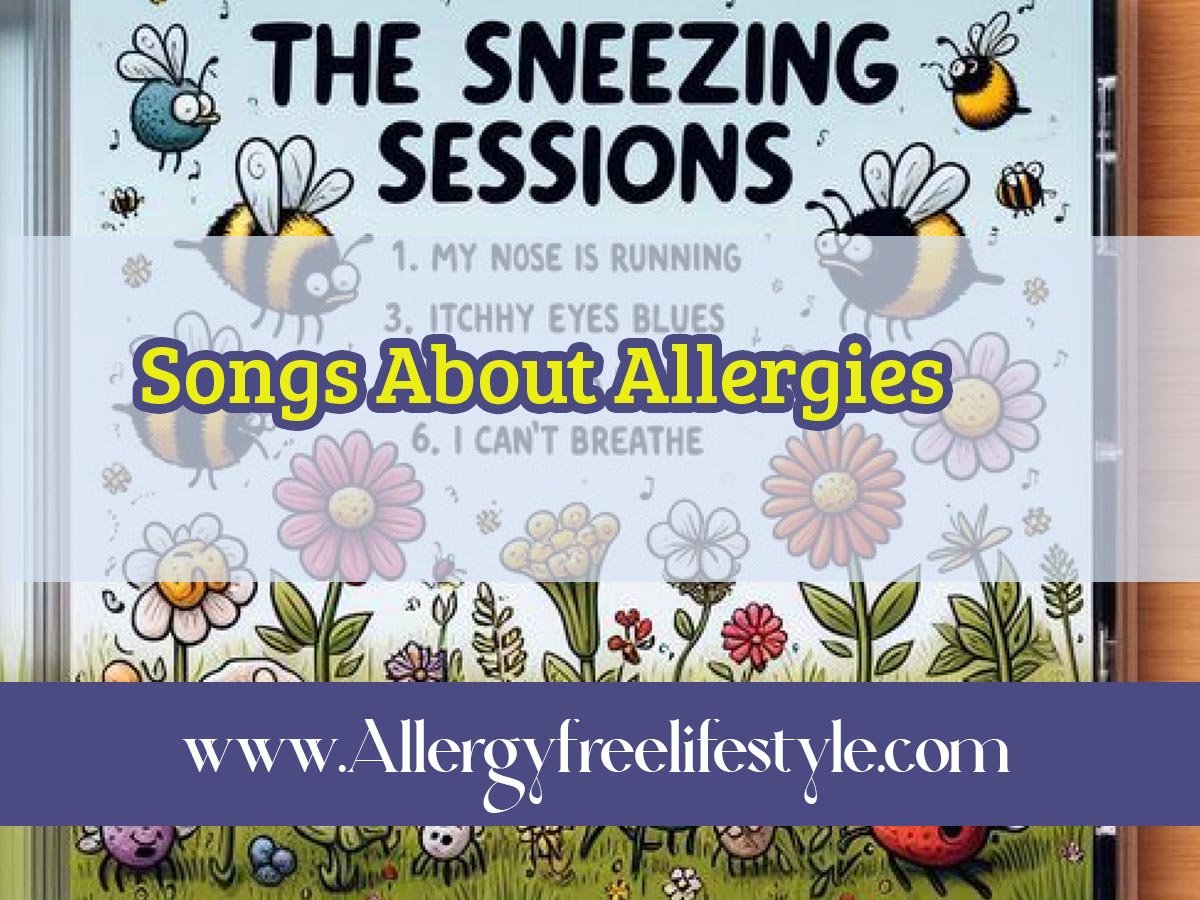
In an age where the quest for sustainable and skin-friendly materials is more than a trend—a lifestyle—bamboo emerges as a beacon of hope. Revered for its rapid growth and minimal environmental footprint, bamboo is not just another resource; it’s the heart of an eco-conscious movement. But beyond its green credentials, bamboo is celebrated for its purported hypoallergenic properties, making it a darling in textiles, personal care, and home goods. As we peel back the layers of this versatile plant, we delve into an essential query: Is bamboo hypoallergenic truly?
Understanding Hypoallergenic Materials
The term “hypoallergenic” is more than a label; it’s a promise of gentleness—a nod to products designed to minimize the risk of allergic reactions. This characteristic is particularly crucial in a world where sensitivities and allergies are common and on the rise. Hypoallergenic materials, by definition, are less likely to cause an allergic response than others. However, it’s important to note that the term is not universally regulated, leading to its varied interpretation across products and industries.
Why, then, are certain materials branded as hypoallergenic? The answer lies in their intrinsic properties—natural resistance to microbes, dust mites, and fungi, all common culprits behind allergic reactions. Materials that naturally repel these allergens without chemical treatments are often considered safer for sensitive individuals, paving the way for products that support a healthier, more comfortable living environment.
As we further analyze bamboo’s hypoallergenic properties, it becomes clear that understanding the foundation of what makes a material ‘hypoallergenic’ is crucial. This knowledge informs our choices and shapes our expectations for a safer, allergy-friendly world. With bamboo at the forefront of this discussion, we’re prompted to examine its environmental impact and role in fostering well-being through hypoallergenic benefits.
Why Bamboo-made Products Became so Popular
- Bamboo’s ascent in the consumer market is a testament to the growing demand for sustainable and eco-friendly options. With its hardy nature and rapid growth rate, this remarkable plant has found its way into an array of products, from clothing and bedding to kitchenware and beauty items. Its popularity is not just a fad but a reflection of a collective shift towards more responsible consumption practices.
- One of the key factors driving bamboo’s popularity is its sustainability. Bamboo can grow up to a meter a day in the right conditions, making it a highly renewable resource. Unlike hardwood trees, which can take decades to mature, bamboo can be harvested every few years without depleting the resource or harming the ecosystem.
- This rapid renewability, bamboo’s ability to grow in diverse climates, and its minimal need for pesticides and fertilizers underscore its eco-friendly appeal.
- Furthermore, bamboo’s versatility has replaced more traditional, less sustainable materials.
- In textiles, for example, bamboo offers a soft, breathable fabric that’s increasingly chosen for its comfort and durability.
- Bamboo’s strength and aesthetic appeal in home goods has made it a preferred choice for furniture, flooring, and utensils.
- The material’s natural properties, such as its antibacterial and antifungal characteristics, add to its allure, positioning bamboo as an environmentally sound option and a healthier one.
- The rise of bamboo in consumer products reflects a broader trend towards sustainability and natural wellness.
As consumers become more conscious of their environmental impact and seek products that align with their values, bamboo stands out for its ability to marry eco-friendliness with practical benefits. This growing preference for bamboo-based products clearly indicates its significance in moving towards a more sustainable, health-conscious future.
Properties of Bamboo
Delving into the heart of bamboo’s appeal, its natural properties play a pivotal role in its hypoallergenic status. Bamboo, a grass species, possesses inherent qualities that set it apart from other materials. Its antibacterial and antifungal attributes are not just remarkable; they’re a testament to bamboo’s resilience and ability to thrive without chemical pesticides. This natural resistance to pests and pathogens is a cornerstone of bamboo’s hypoallergenic profile.
Bamboo’s antibacterial property, often attributed to a substance called “bamboo kun,” is intrinsic to the plant. This bio-agent helps bamboo resist the colonization of bacteria and fungi, making bamboo products less likely to harbor allergens that can trigger reactions in sensitive individuals. This property is particularly beneficial in textiles, where the prevention of bacterial growth translates to fabrics that remain fresher and odor-free for longer periods, thereby reducing the need for frequent washing with harsh chemicals.
Moreover, bamboo’s antifungal characteristic further enhances its hypoallergenic potential. Fungi and mold are common allergens that can exacerbate respiratory conditions and skin irritations. Bamboo’s natural resistance to these organisms ensures that products from this material offer a safer, healthier environment, especially for those with allergies or asthma.
The structure of bamboo fibers also contributes to its hypoallergenic properties. Bamboo fabrics are crafted from smooth, gentle fibers that minimize irritation and discomfort on the skin. This smoothness, combined with bamboo’s moisture-wicking capabilities, ensures that the skin remains dry and less prone to irritation caused by friction and dampness.
In essence, the hypoallergenic nature of bamboo is not just a marketing claim but a characteristic rooted in the plant’s inherent qualities. These natural properties make bamboo ideal for a wide range of applications, promising a blend of comfort, health, and sustainability. As we explore the comparison of bamboo with other materials, it becomes evident that bamboo’s unique attributes offer an unparalleled advantage in the quest for hypoallergenic solutions.
Comparing Bamboo to Other Materials
Bamboo offers unique advantages that underscore its hypoallergenic properties compared to traditional materials used in products like textiles, furniture, and household items.
Cotton, for instance, is a widely used material in clothing and bedding. While it’s praised for its softness and breathability, cotton lacks bamboo’s natural antibacterial and antifungal properties. Cotton products can more easily harbor allergens and require more frequent washing with potentially harsh chemicals to maintain a hypoallergenic environment. Additionally, conventional cotton farming often relies on pesticides and insecticides, residues of which can remain in the fabric and potentially irritate sensitive skin.
Synthetic fibers, such as nylon and polyester, offer durability and moisture resistance but fall short in breathability and natural antibacterial qualities. These materials can trap heat and moisture against the skin, creating an environment favorable to bacterial growth and irritation. Moreover, synthetic fibers are energy-intensive and heavily reliant on fossil fuels, making them less sustainable and potentially more allergenic due to chemical treatments.
Wool, another common material in clothing and bedding, is known for its warmth and natural flame resistance. However, wool’s coarse fibers can irritate the skin, triggering reactions in people with sensitivities. While some types of wool, like merino, are finer and less likely to irritate, they still do not possess the antibacterial and antifungal properties inherent to bamboo.
Bamboo, in contrast, combines the best of these worlds. Its fibers are naturally soft and smooth, providing comfort and reducing the risk of skin irritation. Bamboo’s moisture-wicking ability keeps the skin dry and less prone to irritation caused by dampness, while its antibacterial and antifungal properties help prevent the growth of allergens. These qualities make bamboo an excellent material for people with allergies, sensitive skin, or seeking a healthier environment.
Furthermore, bamboo’s eco-friendly growth and harvesting process adds an extra layer of appeal for consumers looking to make responsible choices. Unlike the intensive farming and chemical treatments required by some other materials, bamboo’s natural resistance to pests and diseases minimizes the need for chemical interventions, ensuring a cleaner, more sustainable product from start to finish.
In summary, compared to other commonly used materials, bamboo offers superior hypoallergenic properties and environmental and health benefits, making it an increasingly popular choice for consumers prioritizing sustainability and well-being.
Benefits of Bamboo for Allergy Sufferers
Finding materials that don’t exacerbate their condition is a constant challenge for individuals grappling with allergies. Bamboo emerges as a beacon of hope in this scenario, offering multiple benefits that cater specifically to the needs of allergy sufferers. Its unique combination of natural properties makes bamboo an environmentally sound choice and a healthful one, particularly for those sensitive to allergens.
Natural Hypoallergenic Properties: Bamboo’s inherent antibacterial and antifungal traits significantly reduce the presence of allergens. Unlike materials that require chemical treatments to ward off microbes, bamboo’s natural resistance ensures a cleaner, safer contact with the skin. For allergy sufferers, this means a reduced risk of reactions, making bamboo products—from bedding to clothing—a preferred choice.
Moisture Management: Bamboo’s ability to wick away moisture is another boon for individuals with allergies. Moist environments are breeding grounds for dust mites and mold, two common allergens that can trigger respiratory symptoms and skin reactions. Bamboo’s moisture-wicking capability keeps the material drier, discouraging the growth of these allergens and promoting a healthier living environment.
Softness and Comfort: The physical comfort of bamboo fabrics can’t be overstated. Its fibers are inherently soft, smooth, and breathable, reducing the potential for irritation and discomfort. This is particularly crucial for those with sensitive skin or conditions like eczema, where rougher materials can cause flare-ups and discomfort.
Chemical-Free Growth: The minimal need for pesticides or fertilizers in bamboo cultivation is a significant factor in its hypoallergenic profile. The chemical residues in conventional textiles exacerbate Many allergies and sensitivities. Bamboo’s clean growth process translates to cleaner products, free from these irritating chemicals.
Sustainable and Safe: Beyond its hypoallergenic benefits, bamboo’s sustainability is reassuring for consumers. Knowing that their choice of bamboo products benefits their health and contributes to environmental preservation is a significant advantage.
Testimonials and Studies: Anecdotal evidence and some studies support the hypoallergenic benefits of bamboo. Users often report fewer allergic reactions and an overall improvement in comfort when switching to bamboo-based products. While more research is needed to quantify these benefits fully, the existing feedback underscores bamboo’s potential as an allergy-friendly material.
In conclusion, the benefits of bamboo for allergy sufferers are multifaceted, addressing both health concerns and environmental impact. Its natural hypoallergenic properties, moisture management, comfort, and sustainability make bamboo an excellent choice for those looking to minimize their allergy symptoms and improve their overall well-being. As more consumers become aware of these advantages, the popularity of bamboo products is set to continue rising, marking a significant shift towards healthier, more sustainable living choices.
Choosing Hypoallergenic Bamboo Products
The market has responded with various options as the demand for bamboo products continues to rise, particularly among those seeking hypoallergenic solutions. However, not all bamboo products are created equal, and discerning the genuine from the less beneficial requires a bit of savvy shopping. Here are some tips to ensure you’re selecting high-quality, hypoallergenic bamboo products that will truly benefit your health and well-being.
Verify the Material Source: When shopping for bamboo products, you must check that what you’re buying is made from bamboo and not just labeled as such for marketing purposes. Look for certifications or product descriptions that detail the bamboo source, such as “made from 100% bamboo fibers” for textiles.
Understand the Manufacturing Process: The process of transforming bamboo into fabric can affect its hypoallergenic properties. Bamboo viscose, for example, involves a chemical process that may detract from its natural benefits. On the other hand, mechanically processed bamboo, which retains more natural properties, might offer greater hypoallergenic benefits. Researching the manufacturing process can help you make an informed decision.
Check for Chemical Treatments: While bamboo is naturally antibacterial and hypoallergenic, some manufacturers may treat bamboo products with additional chemicals to enhance these properties or for dyeing purposes. Always check for information about chemical treatments and opt for products labeled as “chemical-free” or “naturally processed.”
Read Reviews and Testimonials: Customer reviews can provide insight into the real-world benefits of bamboo products. Look for feedback from individuals with allergies or sensitivities to gauge whether a product lives up to its hypoallergenic claims.
Beware of Greenwashing: As bamboo’s popularity grows, so does the temptation for brands to engage in greenwashing—making exaggerated or false claims about their products’ environmental or health benefits. Scrutinize claims critically and seek transparency and third-party certifications that back up environmental and hypoallergenic assertions.
Consider the Brand’s Reputation: Companies specializing in eco-friendly and hypoallergenic products are more likely to invest in the quality and authenticity of their bamboo items. Research the brand’s ethos and commitment to sustainability and health to ensure their products align with your values and needs.
Choosing the Right Products for Your Needs: The range of bamboo products available is vast, from bedding to clothing and personal care items. Consider which products will directly impact your allergies or sensitivities, and start there. For many, replacing bedding with hypoallergenic bamboo options can significantly improve sleep quality and reduce allergic reactions.
In conclusion, selecting hypoallergenic bamboo products requires a discerning approach to navigating available options. By verifying the source, understanding the manufacturing process, checking for chemical treatments, and considering the brand’s reputation, consumers can make informed choices that harness the natural hypoallergenic benefits of bamboo, leading to a healthier, more sustainable lifestyle.
Caring for Bamboo Products
Maintaining the hypoallergenic properties of bamboo products is crucial for prolonging their life and ensuring they continue to offer allergy relief. Proper care can make all the difference in preserving the natural benefits of bamboo, from its antibacterial qualities to its soft, skin-friendly texture. Here are some guidelines for caring for your bamboo products:
- Washing: Bamboo fabrics should be washed in cold or warm water (up to 30°C) with a gentle, eco-friendly detergent. Harsh chemicals can break down the fibers and diminish the natural properties that make bamboo hypoallergenic. Opt for a delicate cycle setting on your washing machine to prevent excessive wear.
- Drying: Air dry bamboo products whenever possible to maintain their integrity and softness. If you must use a dryer, only choose a low-heat setting. High temperatures can cause shrinkage and weaken the fibers, reducing the fabric’s breathability and moisture-wicking capabilities.
- Avoiding Bleach and Fabric Softeners: Bleach and fabric softeners are not recommended for bamboo products. Bleach can degrade the fibers and irritate the skin, while fabric softeners can leave a residue that reduces the fabric’s natural absorbency and breathability.
- Ironing: If you need to iron the bamboo fabric at a low temperature without steam. High heat can scorch bamboo fibers, altering their texture and appearance. Ironing or pressing cloth under a cloth can help protect the fabric.
- Storage: Keep bamboo products in a cool, dry place away from direct sunlight. Subjecting bamboo materials and products to prolonged exposure to direct sunlight can cause their colors to fade and fibers to weaken. For bamboo kitchenware or utensils, ensure they are completely dry before storage; this will prevent mold and mildew growth.
Following these tips will help ensure your bamboo products retain their hypoallergenic properties and remain gentle on your skin, contributing to a healthier, more comfortable living environment.
Conclusion: Is Bamboo Hypoallergenic?
Now that we have come to the end of the article, it’s clear that bamboo is hypoallergenic and backed by scientific results and real-life applications. Bamboo’s reputation as a hypoallergenic material is well-earned, offering significant benefits for allergy sufferers and environmentally conscious consumers. Its natural antibacterial, antifungal, and moisture-wicking properties make bamboo an ideal choice for textiles, household items, and personal care products. Individuals can enjoy the full range of benefits this remarkable material offers by choosing genuine bamboo products and caring for them properly.
Bamboo stands out as a versatile, eco-friendly solution as we seek out sustainable and health-conscious options in every aspect of our lives. Its hypoallergenic properties are just one of the many reasons to consider incorporating bamboo products into your home and daily routine. Embracing bamboo is a step toward a more sustainable future, offering comfort, health benefits, and peace of mind for those with allergies and sensitivities.
FAQs
- Is all bamboo fabric hypoallergenic?
- While bamboo has hypoallergenic properties, the processing method can affect the final product’s hypoallergenic status. Look for mechanically processed bamboo and avoid chemically treated fabrics for the best benefits.
- Can bamboo products eliminate allergies?
- No material can guarantee the complete elimination of allergies, but bamboo products can significantly reduce exposure to common allergens, helping to alleviate symptoms for many people.
- Are bamboo products only beneficial for those with allergies?
- No, bamboo products offer benefits beyond their hypoallergenic properties, including sustainability, comfort, and durability, making them a great choice for anyone interested in eco-friendly and health-conscious living.
In choosing bamboo, consumers take a step towards managing allergies and contribute to a larger movement towards sustainability and natural wellness.



